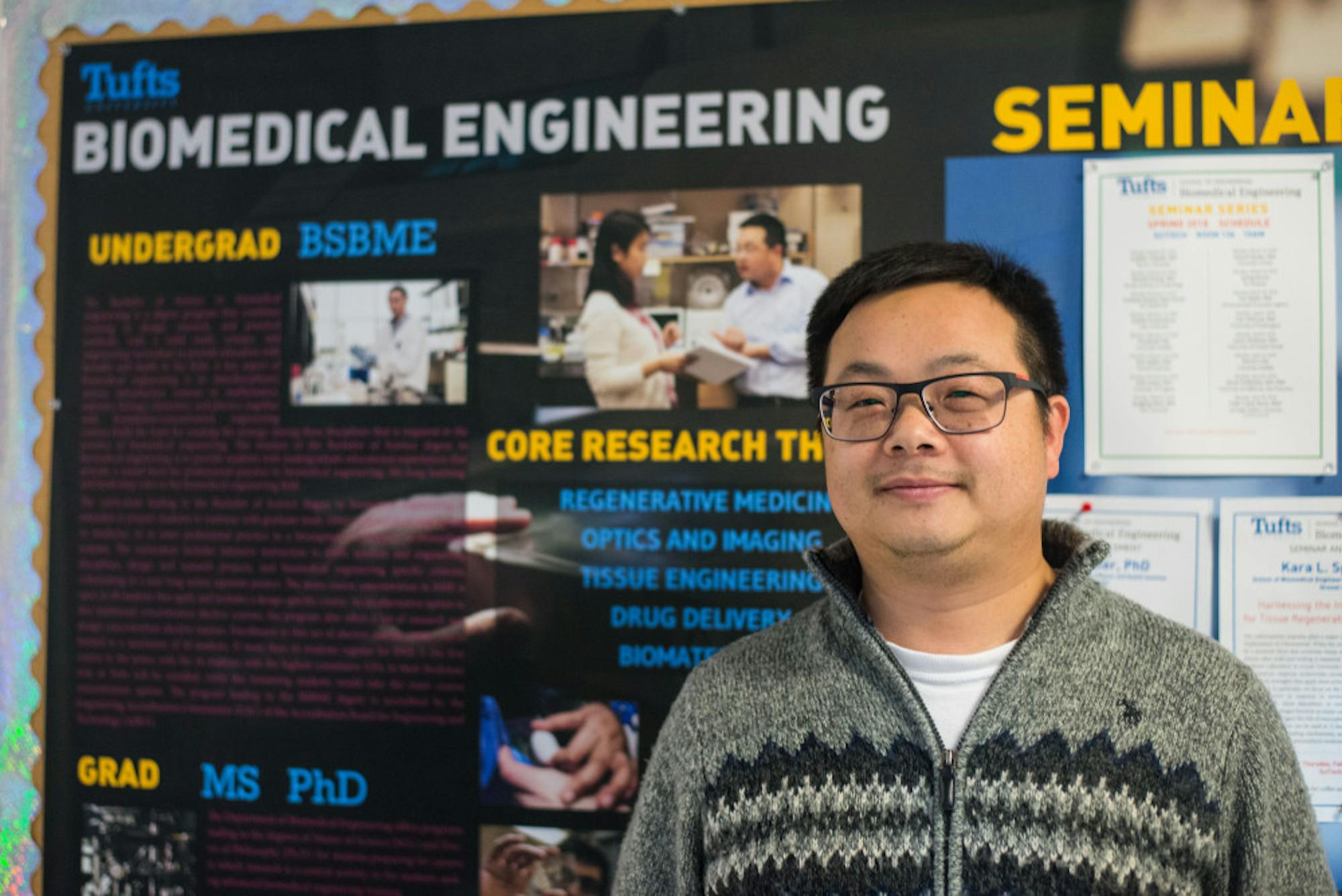The Department of Biomedical Engineering (BME) at Tufts is creating a co-op program for undergraduates, with the first co-op placements offered as soon as next spring. According to Qiaobing Xu, an associate professor of BME, the program will allow students to participate in full-time paid job placements for six months during the school year.
Xu said that a variety of companies are interested in working with Tufts in the co-op program, as the department has been building relationships with them for several years.
“Since this is starting with the biomedical engineering department, the companies that we have reached out to are the pharmaceutical companies and also the biotechnology and medical device companies,” he said.
To participate in the co-op program, BME students will first be required to take a course he will teach in the semester prior to the job placement, Xu said.
“In this class, we plan to teach them how to interact [within] a professional industry,” Xu said.
Xu added that the course will include guest lecturers from companies so students can hear their perspective, as well as guest lecturers from the Career Center so students can prepare their resumes and hone their interview skills.
According to Xu, there is no limit on how many students can participate in the program, though most participants will likely be juniors and seniors.
Ilse Allen, the department manager of BME, has been working on the administrative side of preparing for the co-op program. Xu and Allen said speaking with co-op programs at other universities was helpful in creating Tufts' program. Allen said she had spoken with faculty at Northeastern University, the University of Massachusetts Lowell and other schools to learn more about their versions of the program.
Allen said that the goal is to start the co-op program in spring 2019 and continue it for six months, but the approval process is still underway. Xu said that BME faculty will vote on the change at a faculty meeting on March 28.
Allen also said that support for the program has been strong throughout the School of Engineering.
“It’s a very new thing for Tufts, and because there’s a lot of complicated pieces involved with it, we want to make sure everything is covered," he said. "We want to make sure we’re not forgetting something big, because we’re new to this, and it’s different at different schools."
Allen and Xu said that a co-op program will be extremely important for biomedical engineers at Tufts.
“The reason that we are interested in this particularly is because BME is one of those disciplines where, if you have experience doing research, especially in an industrial environment, it’s very good for you when you’re applying for [graduate] schools," Allen said. "This is a discipline where there’s a lot of hands-on research when you’re an undergrad, and this helps people get the experience they need in order to go forward in the workforce or in going to grad school."
David Kaplan, a BME professor, also emphasized the importance of work experience.
“Students want to see the practical side of what they are learning, so this gives them a new option toward that goal,” Kaplan told the Daily in an email.
Xu said he hopes the opportunity to work in co-ops will help students define their career path by showing them the benefits of working in industry versus going to medical or graduate school. Also, according to Kaplan, companies will likely become more familiar with Tufts because students will be able to work for six months, as opposed to solely during the summer.
"As a department, we are quite excited about providing this option to our students," Kaplan said. "We feel it will make a significant difference for some of the students in terms of career choices."
Biomedical engineering department to vote on new co-op program

Associate Professor of Biomedical Engineering Qiaobing Xu, who will teach the required class for the new engineering co-op pilot program, poses for a photo in the Science and Technology Center on Feb. 22.





